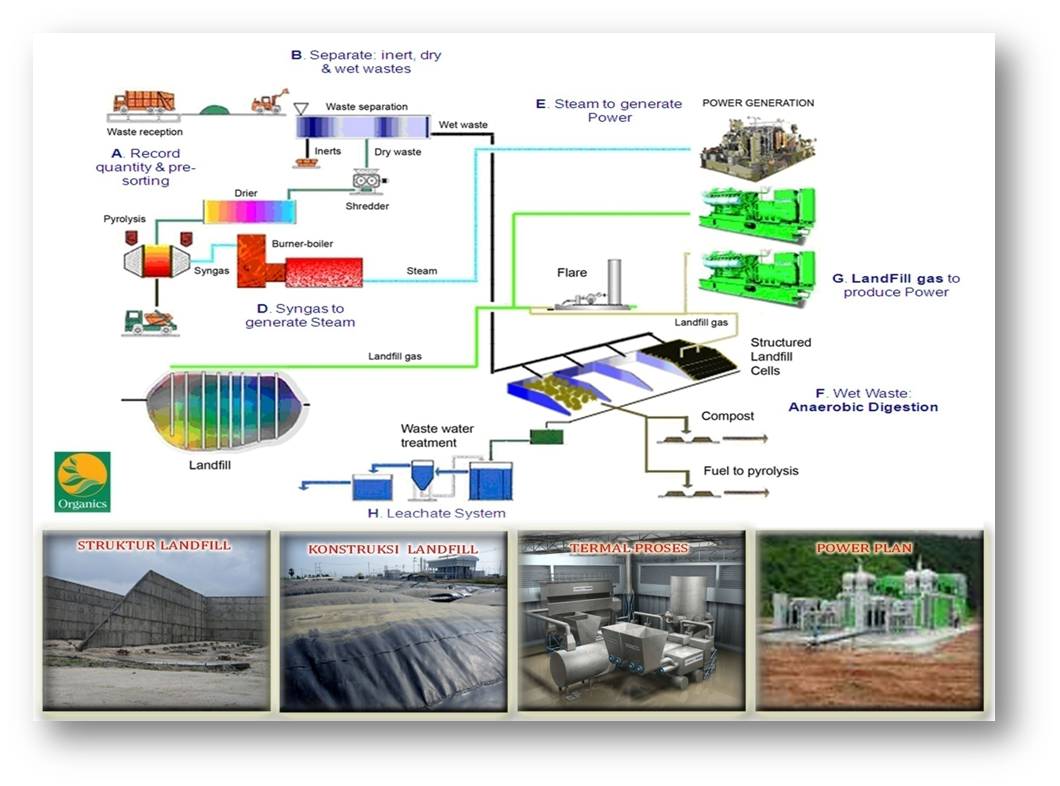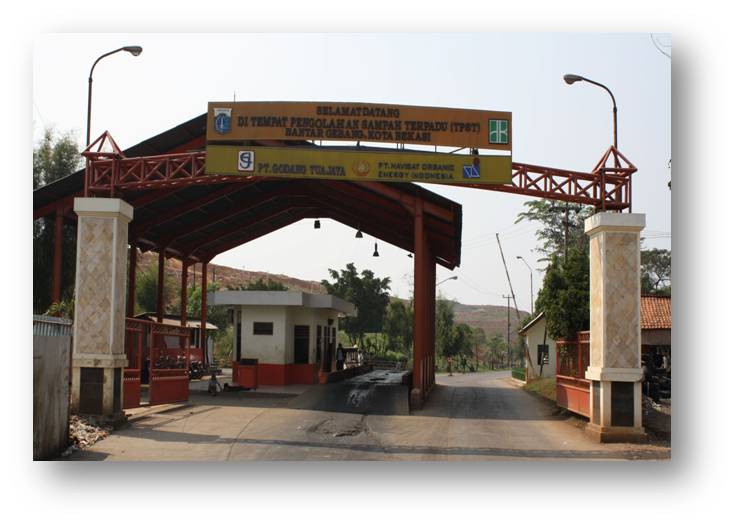
Waste Management In Jakarta: Reduce, Reuse, RecycleJakarta
■ Overview
Jakarta's Department of City Cleaning employs various methods of waste management. Among those most prominently utilized are the Intermediate Treatment Facilities and Integrated Final Treatment Plants.
The Intermediate Treatment Facilities(ITF) were formerly transfer stations, which are designed to contain waste before being transported to the Final Treatment Plant, or composting centers, which aim to recycle and process the organic waste to produce compost, taking advantage of the high percentage of organic composition in waste.
Treatments employed at the ITFs, such as mechanical bio treatments to create refused derived fuel, can reduce 90% of the initial amount of waste. Thus, the facilities cut the load of Final Treatment Plants, and lessen the number of vehicles needed to transport waste to said plants.
The Final Treatment Plant is designed with the concept of viewing solid waste as a valuable and renewable resource, which can be used to produce energy, fertilizer, and raw materials for industry use. Among the methods used in the plant are the Sanitary Landfill System with Gassification Landfill Anaerobic Digestion (GALFAD), environment-friendly methods such as sorting, composting, and recycling, and using landfill gas and landfill mining to generate electricity and resources.
 
■ Period of Implementation
- 1 July 2011 - 30 June 2012
(Waste Management of ITF Cakung Cilincing)
■ Features
- The concept of waste as a renewable energy resource, as well as the effort to use more environment-friendly methods in waste management.
■ Outcomes / Achievements
- Constructing ITFs is stated in Jakarta's 2007-2012 mid-term development plan as a dedicated program. One of the ITFs whose construction is currently on progress is ITF Cakung Cilincing. The applied technology for the facility is Anaerobic Digestion as a part of Mechanical Biological Treatment (MBT)
ITF Cakung Cilincing is plnanned to operate by a yearly contract service. On the first semester, July - December 2011, the facility will treat 450 ton waste per day to produce organic fertilizer. The second semester, January - June 2012, the facility will increase its capasity to 600 ton waste per day producing organic fertilizer and electricity.
■ Cost
■ Inquiries
-
Department of City Cleaning, Jakarta Capital City Government
Ir. Eko Bharuna, MT (ekobharuna@yahoo.com)
Iwan H. Wardhana, SE, MSiP (iwanwardhana@yahoo.com)
(Tel) +62-21- 809-2744
■ Related Links
|
